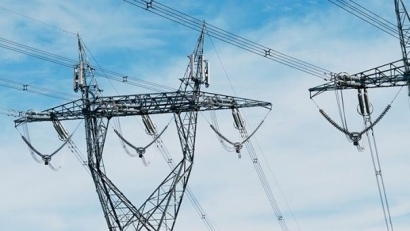
This latest round builds upon two previous solicitations released in 2016 and 2017 with a continued focus on reliability and resilience by the Grid Modernization Initiative. GMI is a crosscutting effort within DOE that focuses on public and private partnerships to develop new tools and technologies that measure, analyze, predict, protect, and control the grid of the future. This solicitation is focused on developing a portfolio of projects in resilience modeling, energy storage and system flexibility, advanced sensors and data analytics, institutional support and analysis, cyber-physical security, and generation.
The research brings together scientists from DOE’s national labs with industry and university partners to develop efficient, cost-effective solutions to harden the grid against disruption and to make it more resilient when events occur. The projects address challenges across the fully integrated energy network, from power generation, to transmission across vast distances, to the local distribution of electricity by utilities.
“A modern, resilient power grid is vital to the nation’s economic and national security and to the well-being of its citizens,” said Moe Khaleel, Associate Laboratory Director for Energy and Environmental Sciences at ORNL.
ORNL will lead two projects. In the first, the Multi-Port Modular Medium-Voltage Transactive Power Electronics Energy Hub, researchers will design and develop medium-voltage power electronics hardware and software to enable the integration of the growing volume of intermittent, renewable energy sources into the grid while ensuring the smooth flow of electricity.
The second, Vulnerability of Power Generation Critical Systems Against Electromagnetic Threats, will experimentally evaluate the physical security of power generation plants against electromagnetic (EM) threats.
Among the seven other projects on which ORNL will collaborate, the Citadels project will build on Oak Ridge’s success in creating software controls for distributed energy systems known as microgrids—made up of locally sited power generation and energy storage. Citadels will create a similar control scheme for the networking of multiple microgrids, which will support the larger energy system, including as a means to restore grid operations after extreme disruption.
“These projects build on the Grid SecuRe initiative at ORNL, supporting breakthroughs for a more secure, resilient power grid,” said Tom King, Director of the Sustainable Electricity Program at ORNL. “From monitoring the grid with intelligent sensors, to modeling and simulating energy system interdependencies, to devising modern controls for complex operations, and developing hardware like advanced power electronics and intelligent relays, we want to help build a proactive system that has security and resilience as its cornerstone.”
The projects are sponsored by DOE’s Office of Cybersecurity, Energy Security, and Emergency Response; Office of Electricity; Office of Energy Efficiency and Renewable Energy; Office of Fossil Energy; and Office of Nuclear Energy.
UT-Battelle LLC manages Oak Ridge National Laboratory for DOE’s Office of Science, the single largest supporter of basic research in the physical sciences in the United States.

